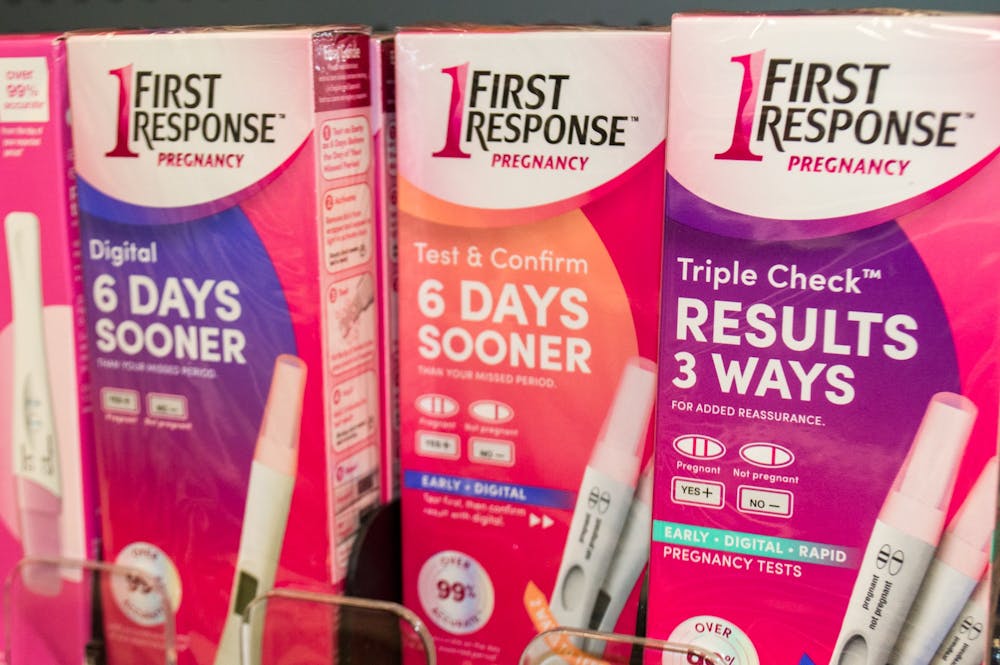Roe v. Wade is overturned. Abortion rights are no longer Constitutionally protected. Say you find that you are pregnant in North Carolina — what happens next?
After finding out you're pregnant, you would first have to consider the political circumstances. Abortion is still legal in North Carolina prior to 20 weeks of conception. Places like Planned Parenthood in Chapel Hill and North Durham Women’s Health could both be options for receiving an abortion.
As of Aug. 17, if you are further than 20 weeks along, North Carolina prohibits abortions after a restrictive law from 1973 was reinstated. The only exception to this ban is when a pregnancy substantially threatens the life or health of the mother. If you don't meet the guidelines set by the state nearly 50 years ago, you are not allowed to make a decision about your own health.
One of the first roadblocks eligible patients have to face is the 72-hour waiting period — one of the longest waiting periods in the country. After receiving mandatory counseling, you must wait three days before your abortion appointment. These waiting periods are not medically necessary, and while they can be used to educate patients on informed consent, they make for numerous visits to the doctor that otherwise would not be needed — all while prolonging the time in which the patient is pregnant when they do not want to be.
Finding rides and arranging these appointments around our already busy schedules is not an easy task. Aside from finding transportation that coincides with a clinic's availability, the costs of the abortion procedure itself can add up to an already lengthy bill.
Some insurance policies cover abortions, but others might require you to pay out of pocket. Medicaid – a national insurance policy for low-income individuals – is limited in its ability to cover abortions, thanks to the Hyde Amendment. This statute prevents federal Medicaid funds from being used to cover abortion.
Medication abortions, typically consisting of two pills, can cost between $350 and $650. In-clinic abortions, by contrast, can cost upwards of $1,000 within six-to-twelve weeks of gestation.
Some young people may not want to use insurance if they fall under their parents’ policy. Additionally, parental consent is required in N.C. for pregnant people under 18 years old, posing yet another obstacle for someone with an unwanted pregnancy.
Finding a clinic that will perform an abortion can be extremely stressful in and of itself. This struggle increases significantly when you live in a rural area.




